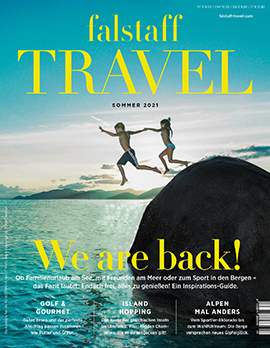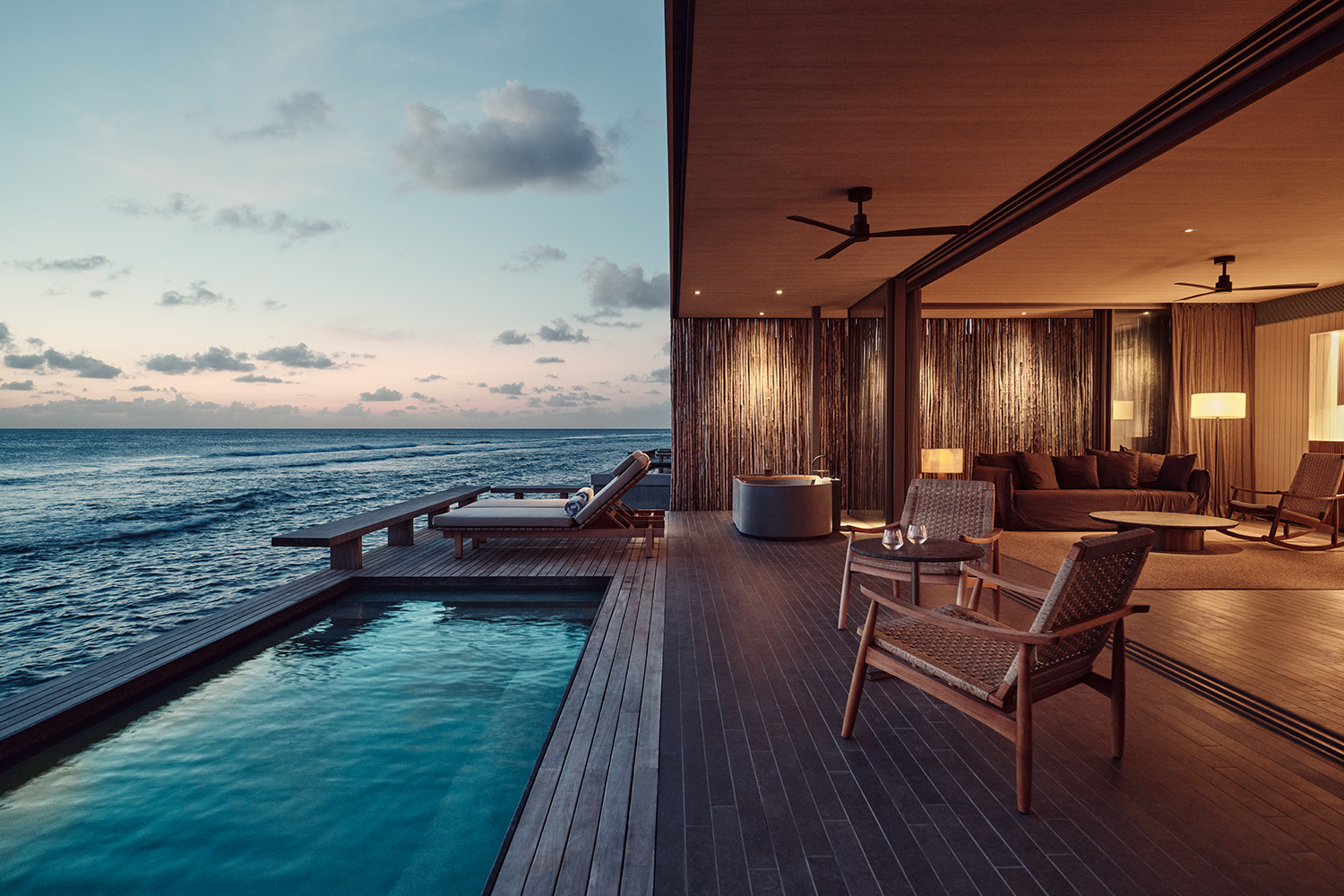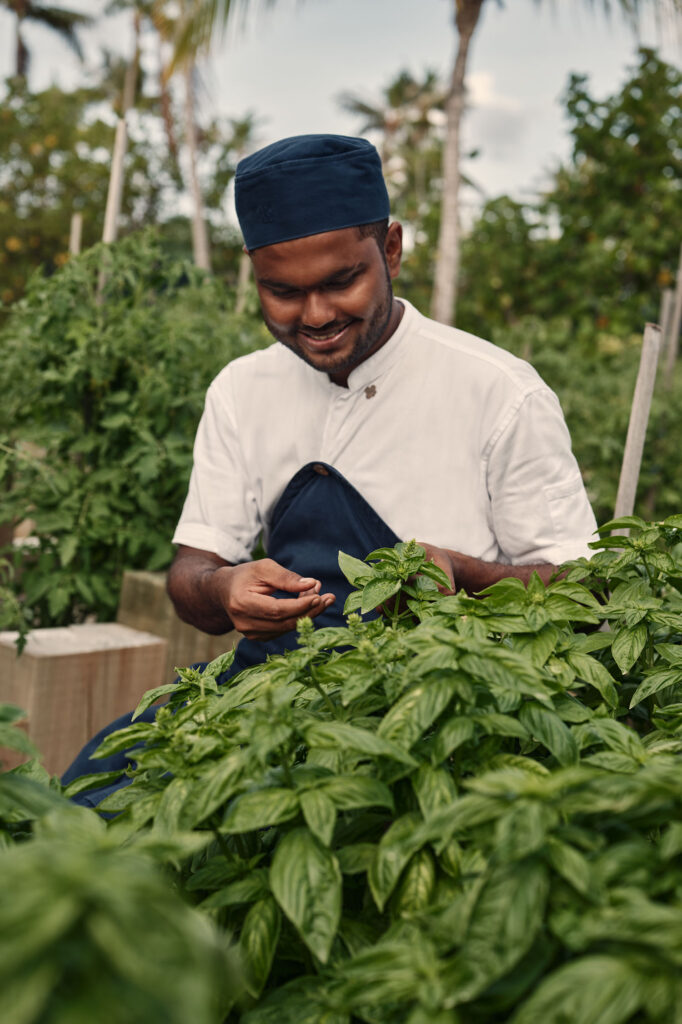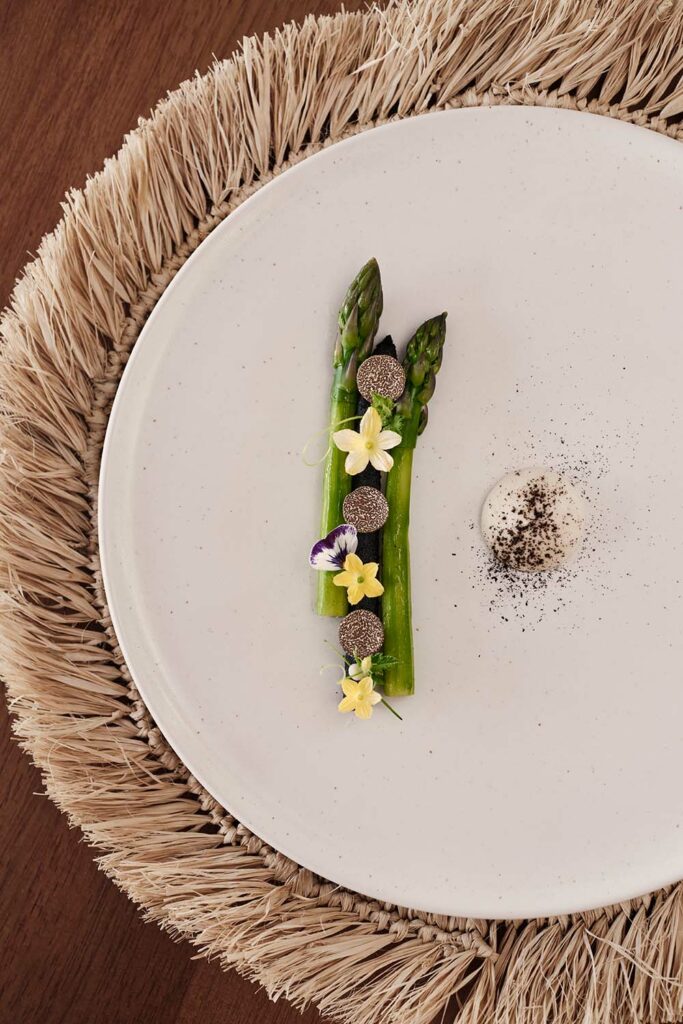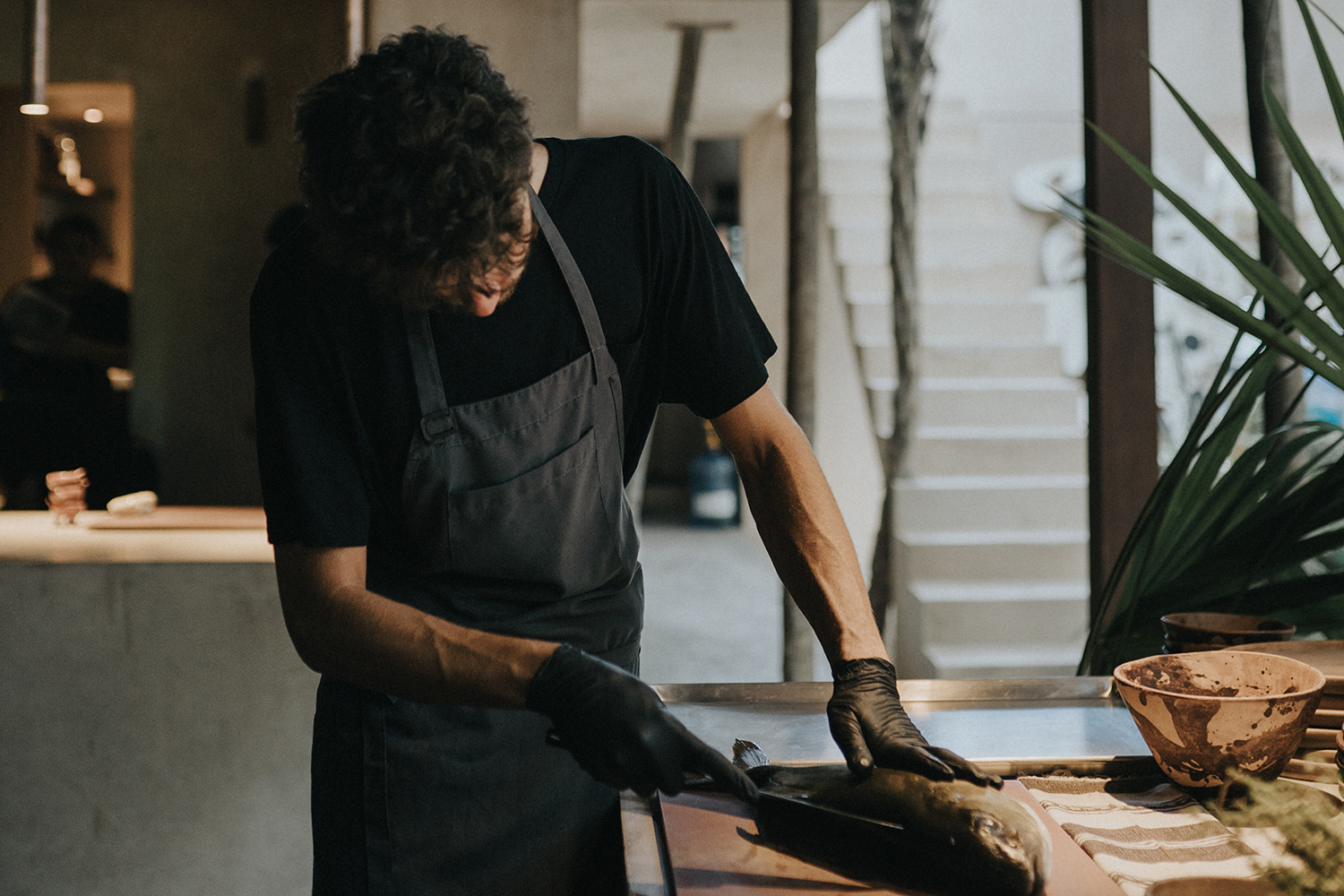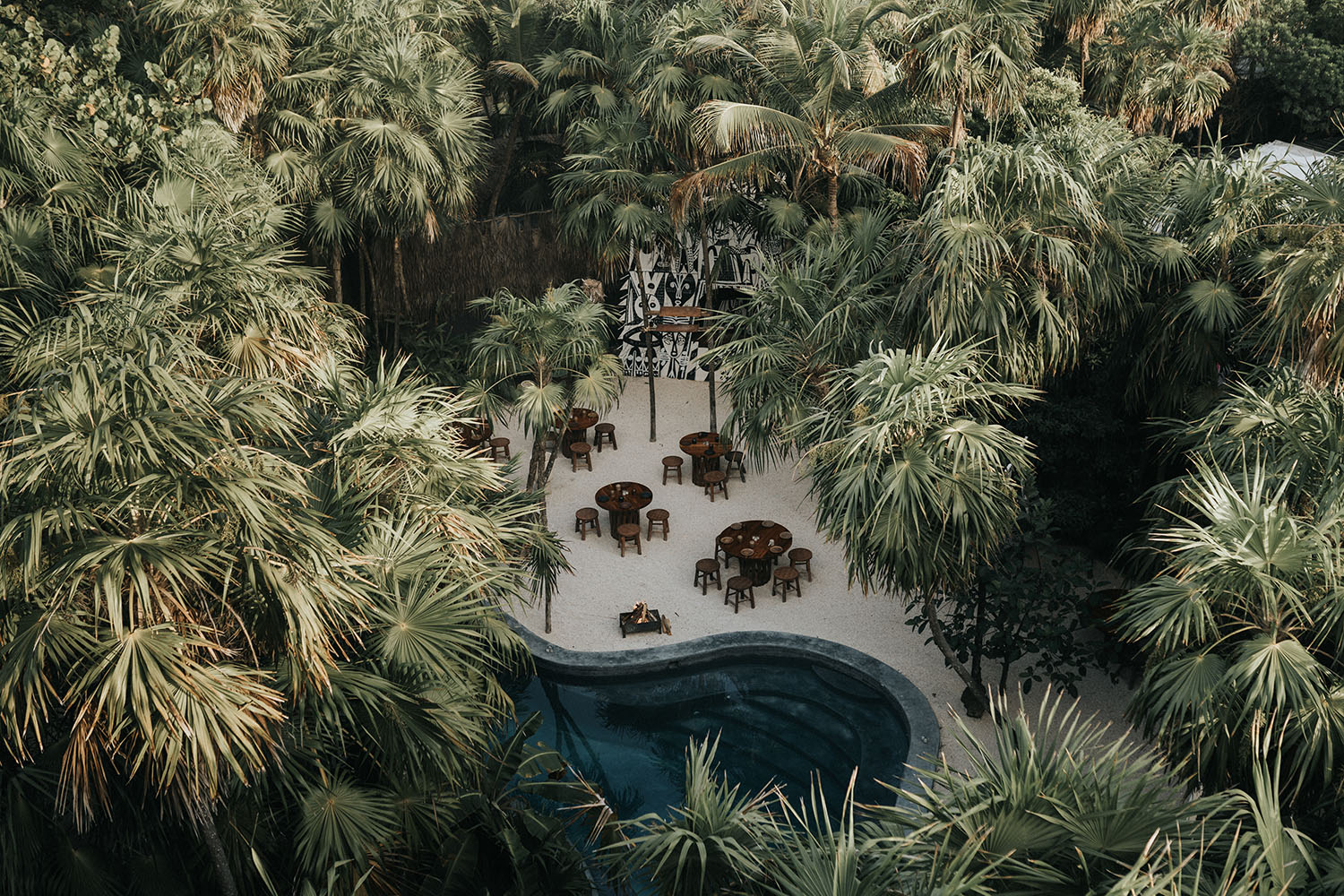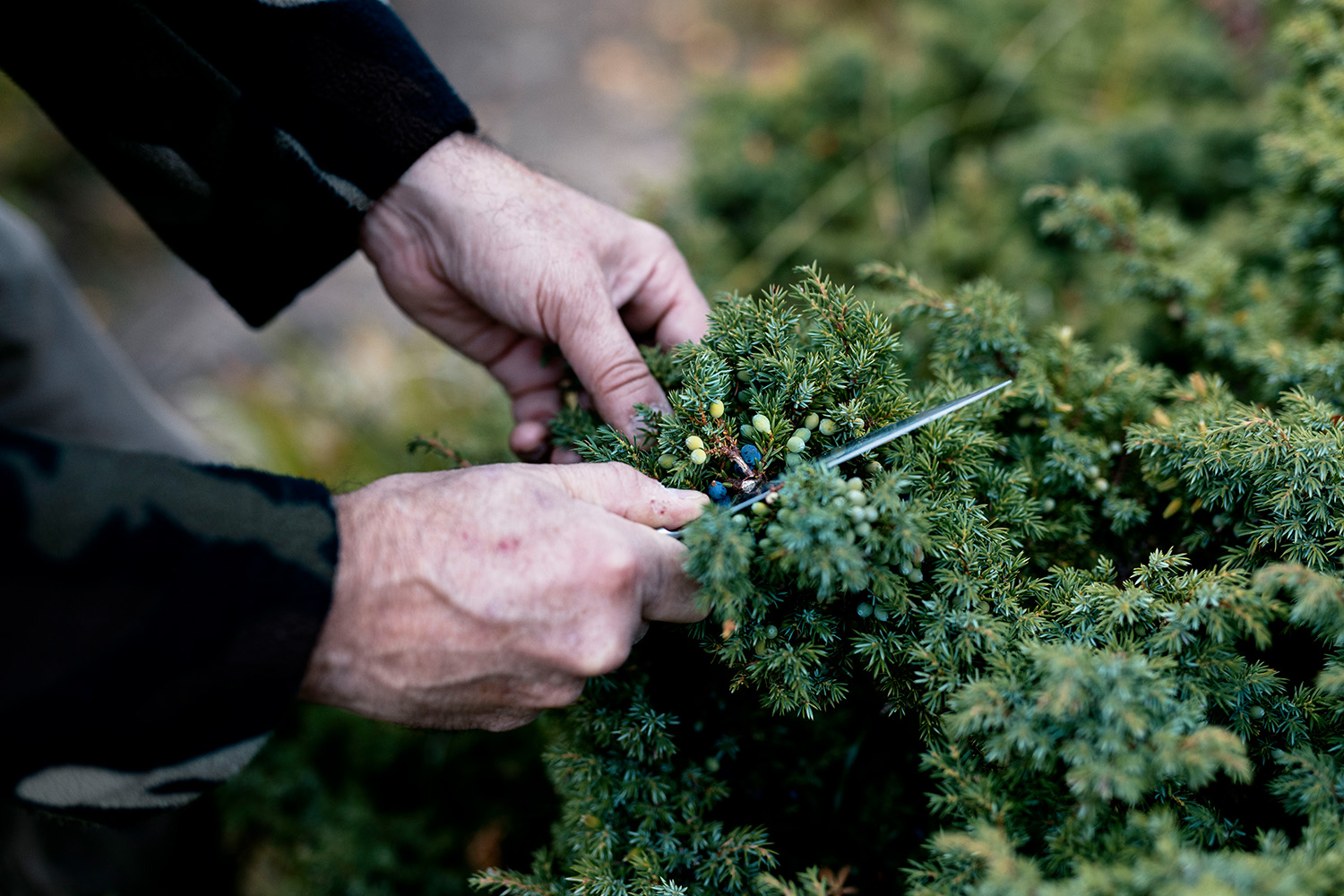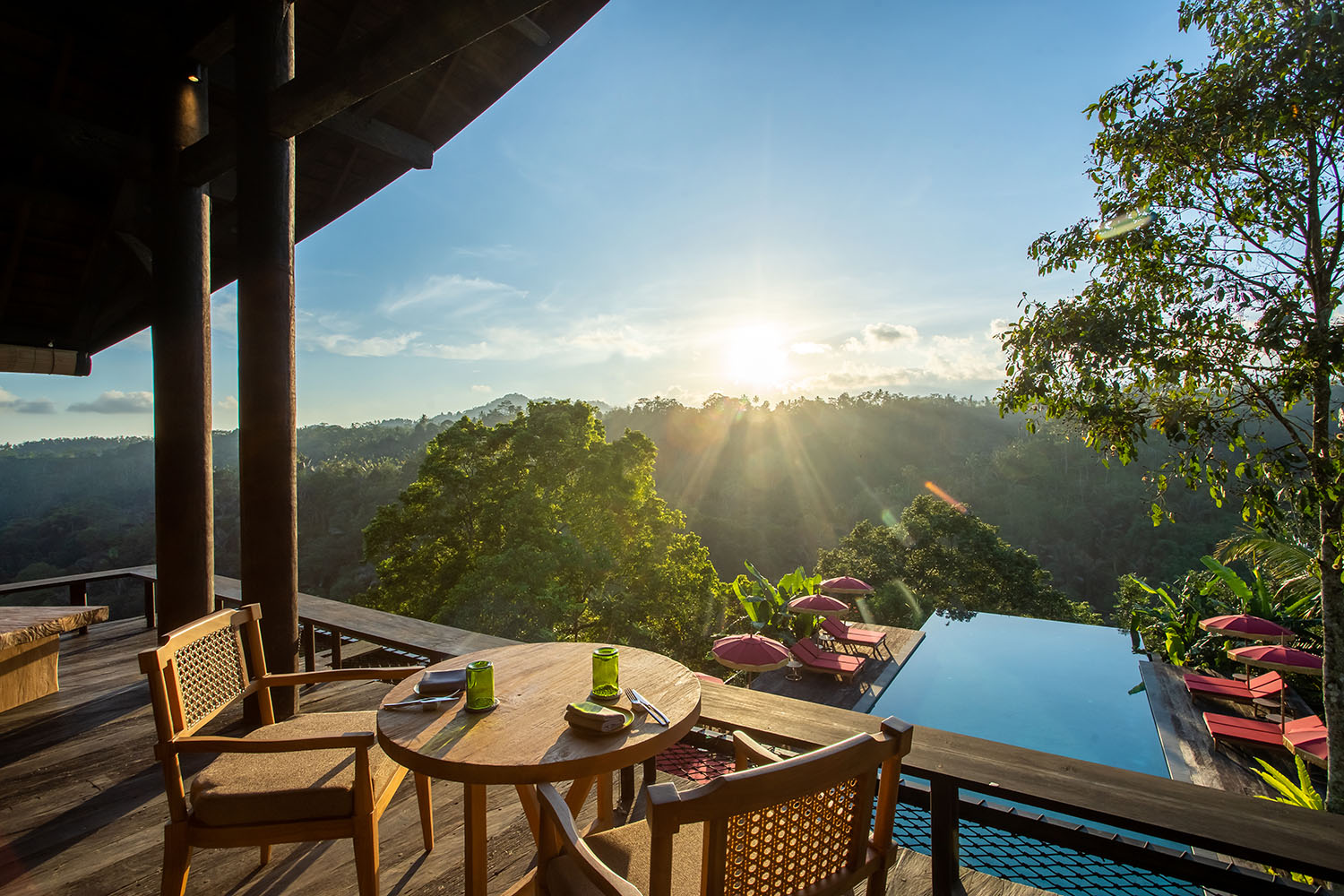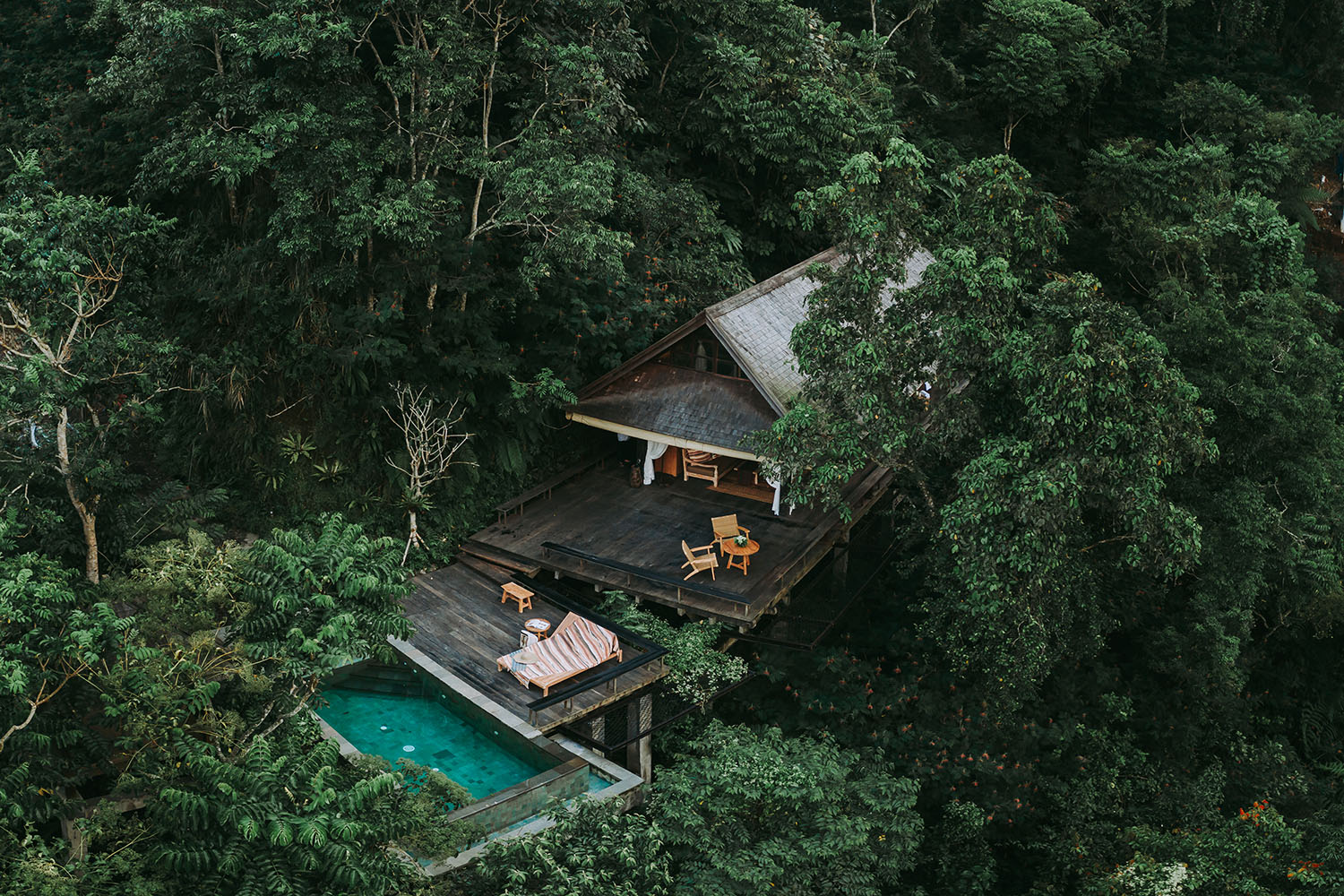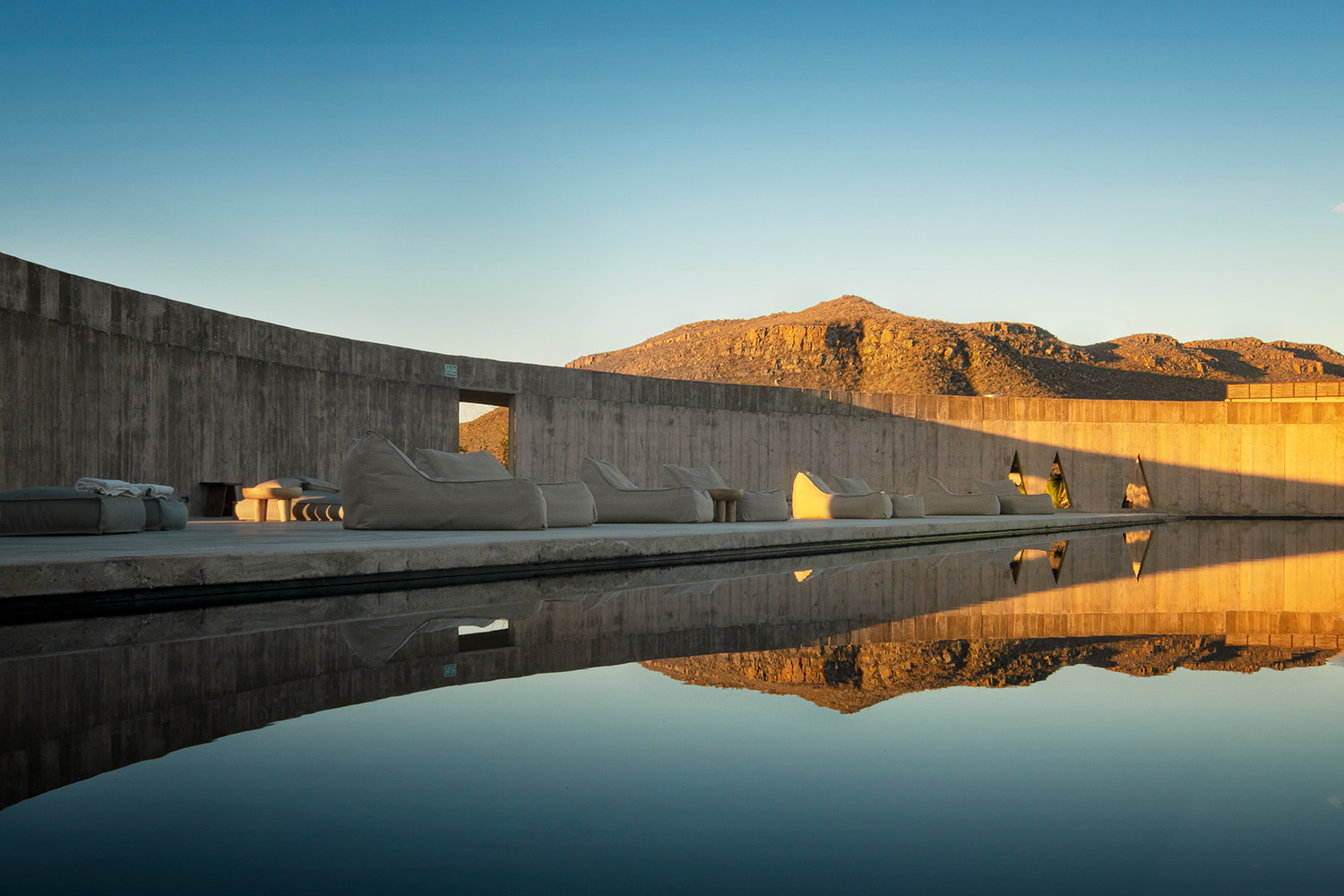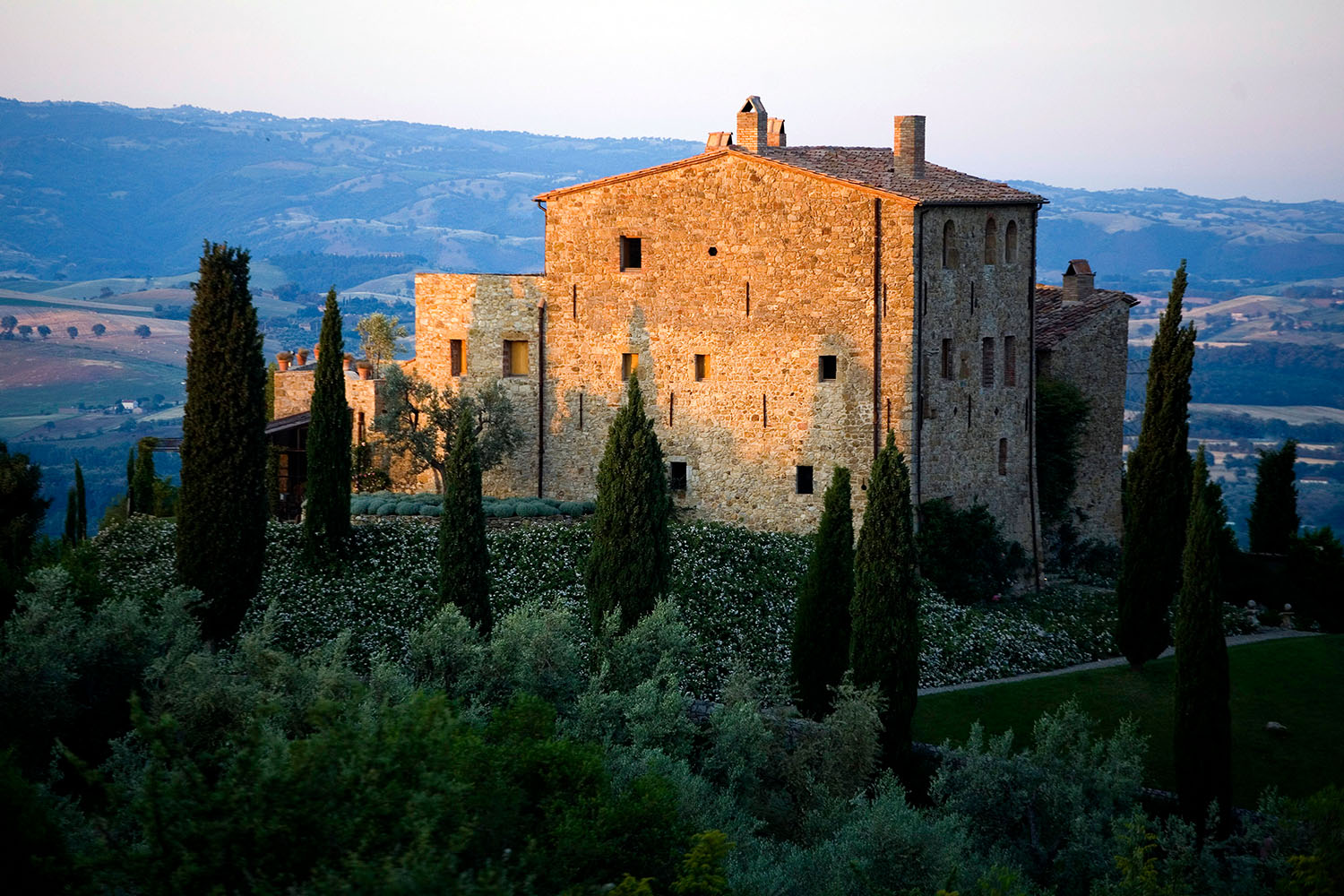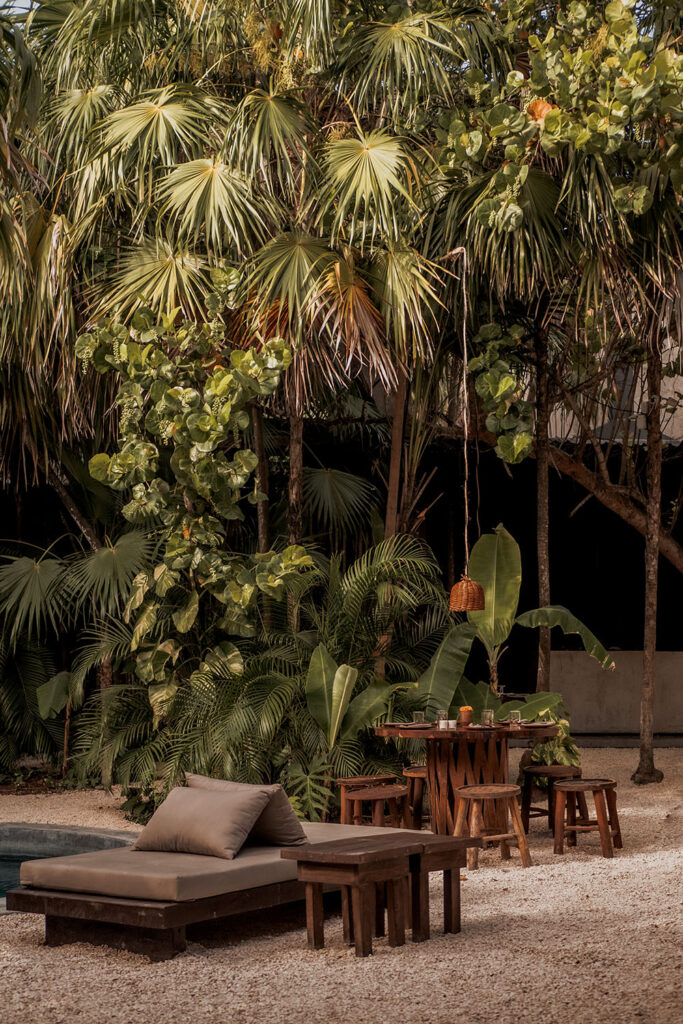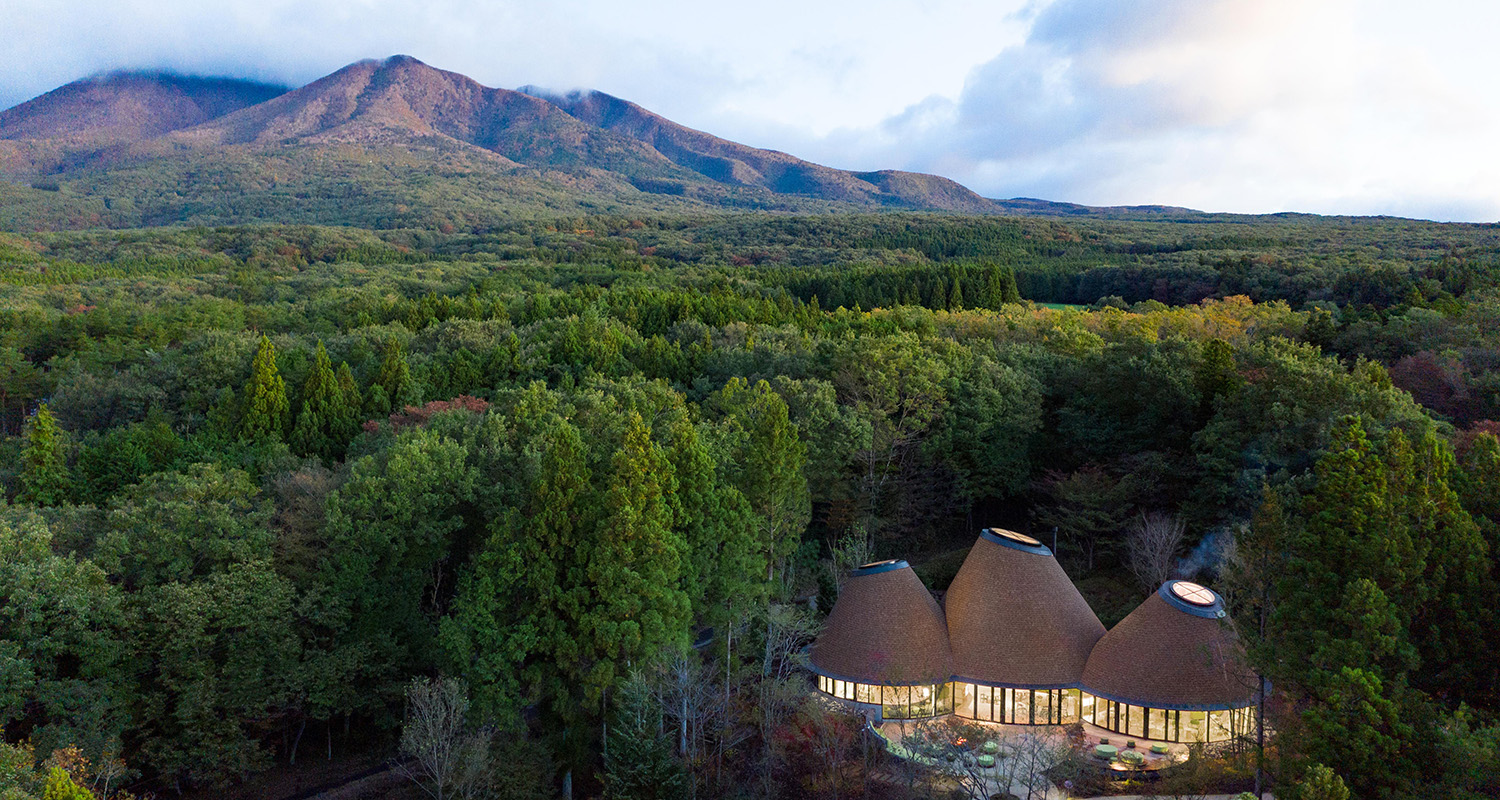
Back to the Roots
Whether it’s biohacking in the Maldives, an outdoor cookery course in the Arctic or a visit to the forest to pick mushrooms for dinner while your mobile stays at reception: “back to the roots” experiences are booming. Luxury hotels are offering bespoke holidays that bring guests face to face with nature and traditional rituals.
August 8, 2022
Many a hotel advertises “me time” only to serve up the same standard programme to everyone. Not so at Patina Maldives, a luxury six-star resort on one of the Fari Islands that takes individuality seriously. First of all, it’s about experiencing the tranquillity of the place – after a long flight, sleep therapy helps you feel like you’ve truly arrived in this paradise under palms. Or maybe you’d like to give biohacking a try?
Modern design with a paradisiacal view. © Georg Roske
It’s a term that’s been popping up in the media for some time now and involves sessions designed to slow down the aging process and boost energy levels – treatments you can explore whenever the mood takes you at Patina Maldives. Mindfulness is key here: the cooks, for instance, are more than happy to show off the garden where they grow organic vegetables and explain what superfoods are all about. A lot of the shrubs were rescued from a neighboring island, where they had to make way for an industrial plant.
Superfood experience: staff at the Patina Maldives show which herbs and foods are good for strengthening the immune system. © Georg Roske
The resort is meant to be a place where you can find your inner self again and discover a new connection with nature – even the youngest guests get a playful introduction to sustainability. Even before the pandemic, signs were beginning to emerge that we want more out of a vacation than superficial impressions.
The motto? Luxury, yes, but with the added value of unforgettable experiences, please. Dubbed “back to the roots”, this travel trend encompasses everything from camping to herding cattle with cowboys, doing a pottery workshop, hunting for truffles, learning to play a traditional instrument or trying rituals that are otherwise the sole preserve of the indigenous population.
Harmony on a plate: the food at the luxurious Patina Maldives reflects the focus on aesthetics and organic products. © Georg Roske
Local food traditions
The 2022 Global Travel Trends Report released by American Express takes an in-depth look at travel habits after the pandemic. It finds that 81% of respondents would like to visit destinations where they can immerse themselves in the country’s culture and express the desire for the money they spend to flow back into the local community.
Rest and relaxation that manages the balancing act between sustainability with self-fulfilment is booming – especially after the isolation of the lockdowns, people are increasingly trying to estab- lish a meaningful connection with the world again. They want their travels to leave a lasting impression and make a mark on their own lives – as well as resulting in positive input for the region.
Culinary craftsmanship builds on regional foods. © Conie Suarez Bravo
Meanwhile, the offering is huge: at the hip Tulum Treehouse, for instance, the ambience is minimalist but elegant and guests dine on local, mostly vegan specialities. Corn, the heart of Mexican food culture, is stone-ground by hand and prepared using techniques that go all the way back to pre-Spanish times. The cooking is done over an open fire.
It’s up to the individual guest to decide how extreme their back-to-the-roots experience should be. And in case lazing around in a hammock gets boring after all, many of the experiences the hotels offer can be conveniently booked once you get there, making it easy to find the ideal combination of wilderness and luxury. For those who don’t necessarily want to learn how to survive in the wild the hard way, the Isle of Skye in Scotland has the answer: Kinloch Lodge is a historic, family-run hotel and restaurant whose stated aim is to offer a retreat that is as unpretentious as it is luxurious. One of the packages available goes by the name of Digital Detox.
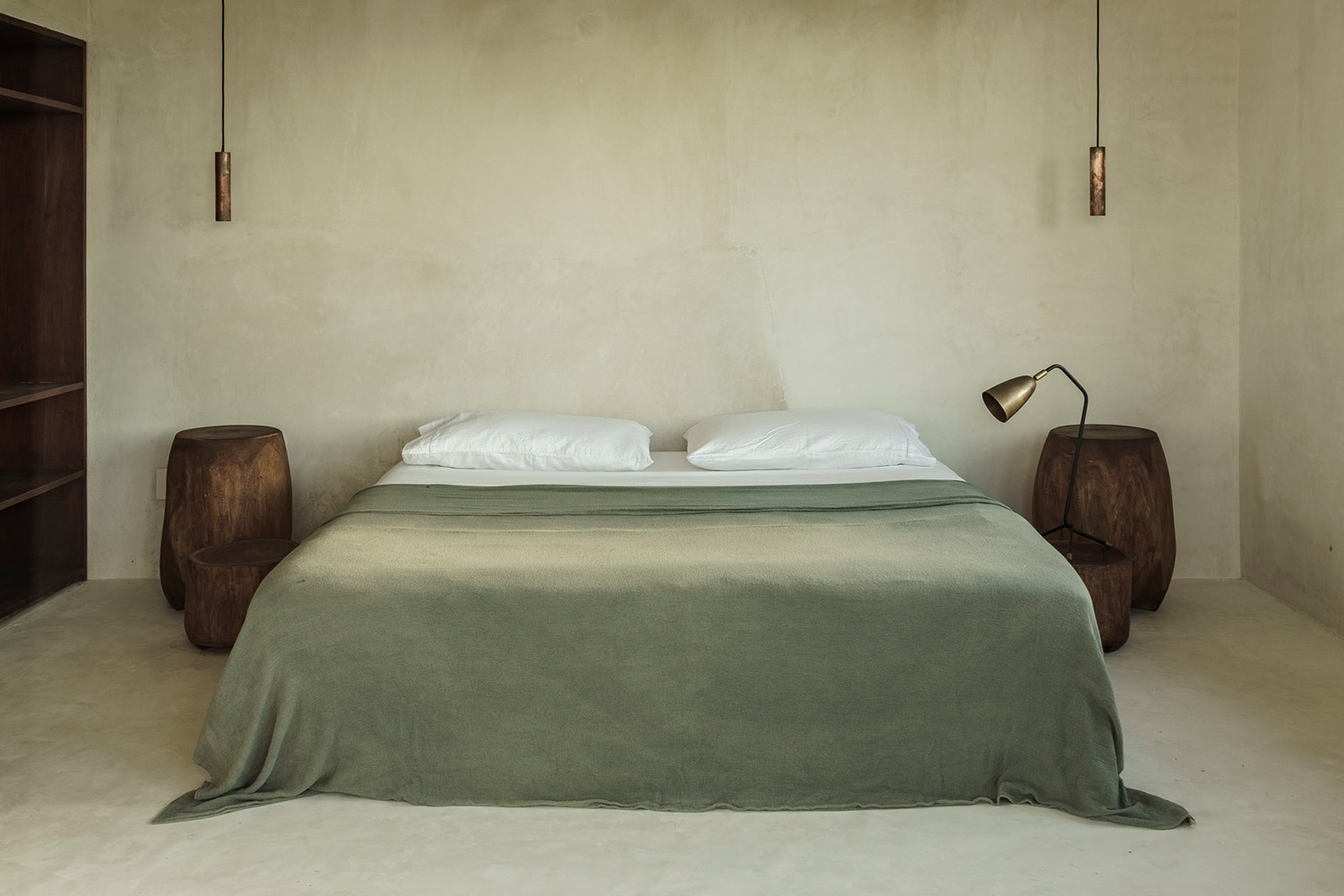
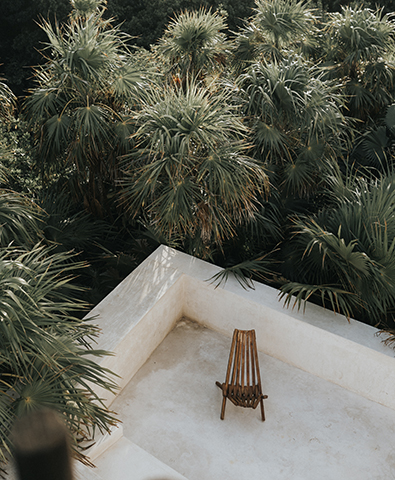
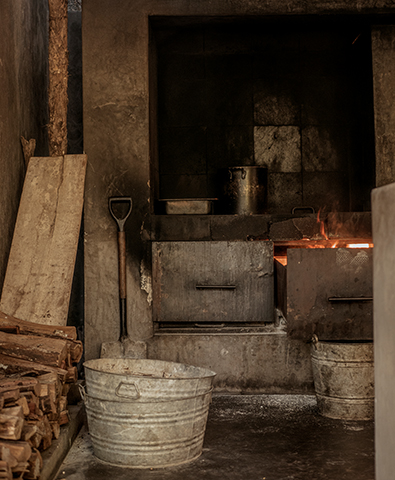
“Handing your mobile phone and all your other digital devices over to the receptionist might sound radical,” admits hostess Isabella Macdonald, who grew up in her parents’ hotel in this remote spot on the edge of the water. “But that’s what it’s all about – being offline for a change and connecting with nature. Our guests are given a painting set and a notebook so that they can capture their impressions.
And we’ve got a big library where they can spend the evenings with their nose in a good book.” There are also daily foraging expeditions to the forest and shore to collect mushrooms, sorrel, seaweed, mussels and samphire. The detox package also includes learning traditional firelighting techniques just in case guests ever need to know how to survive in the wilderness after all.
© Conie Suarez Bravo
Cooking with northern light
The Lofoten archipelago in northern Norway isn’t exactly what you’d call a cosy kind of place. The wild, rugged landscape makes you realise just how small we humans really are. In winter you can see the Northern Lights, the summers are short but intense. Those who find their way to this remote spot want to come face to face with the elements and get a sense of what it’s like to wrest food from the bleak Arctic terrain. Following in the footsteps of the Vikings, the big adventure includes foraging for berries and mushrooms, fishing and learning what to do with these natural ingredients. It’s all about richness through reduction.
© Holmen Lofoten
“A kitchen on the edge of the world” is what British celebrity chef Valentine Warner calls his hotel and restaurant Holmen Lofoten. Guests live in old fishermen’s cabins with interiors featuring superb Scandinavian design. The cooking mostly takes place outdoors, with the star chef – come rain or shine: there’s no such thing as bad weather as long as you’ve got the right clothing. “We’ve lost our connection with nature and with ourselves,” believes Warner. “Holmen Lofoten is a place where we can log off and reconnect, where we can inves- tigate our social roots,” says the famous cookbook author and food TV star. “The weather dictates the daily patterns of life and determines whether you’ll spend time out fishing or perhaps forging a knife in the workshop, or simply taking some quiet time in ‘clean’ silence.”
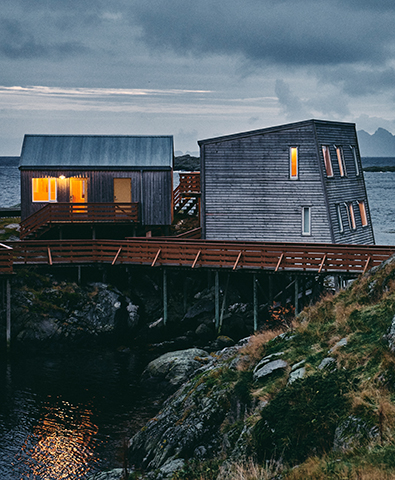
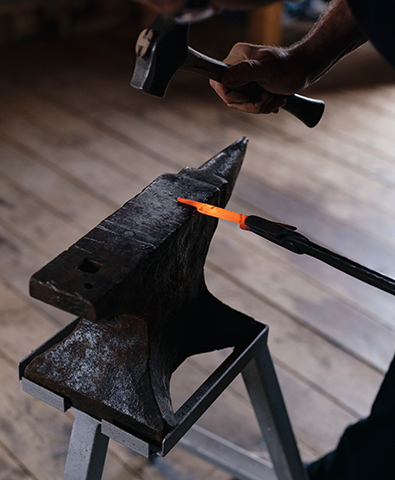
Visit to the local priest
Sometimes, however, the quest for meaning can take the form of a mental and spiritual journey as well. Even the architecture of the Banyan Tree Escape in Ubud on Bali transcends earthly limits: the 16 luxurious villas with pool are elevated above the jungle floor and command a 180-degree panorama that stretches from the treehouses to the rice paddies – there are so many different shades of green that it takes the eyes a while to adjust. The property was designed by Gede Kresna, a local architect who melds Balinese design and eco-friendly architecture.
©Bpso
Cooking classes and visits to local producers are part of the programme here, but guests can also learn about Balinese medicine or be blessed by a priest at the local village temple. The ceremony aims to help guests achieve inner purification and reconnect with the divine energy within. Religion as a wellness experience for vacationers? While offerings like this might sound problematic because they turn the spiritual into a consumable, they are also an opportunity to find out more about the faith and everyday lives of the Balinese and cultivate an open mind towards unfamiliar cultures.
Healing herbs: Guests at the Banyan Tree Escape resort in Ubud learn a lot about traditional Balinese medicine. ©Banyan Tree Escape
There is a considerable demand for ancient healing practices or ritual dances that tourists can participate in. The advantage of a luxury hotel is that even the most exotic of experiences takes place within a protected space. The Paradero Todos Santos resort in Mexico offers Temazcal, a traditional Mayan ceremony used to cleanse the body, mind and soul. The ceremony is performed by a local shaman in a mud hut heated with volcanic stones.
© Yoshihiro Koitani
Because the rocks are sprinkled with plant waters, the hut is filled with a fantastic fragrance that is accompanied by music and prayers to create a truly special experience. How much of that can be carried over into everyday life is a question that can be asked about any holiday. But at least back-to-the-roots experiences give you a different perspective on your own life – and teach you a lot more about a country than just ticking off the sights on a list of famous tourist attractions.
Wellness with added value: at the Patina Maldives it’s all about the right flow – about connecting humans and nature. ©Georg Roske
Sustainable luxury resorts
Paradero Todos Santos
© Yoshihiro Koitani
At Paradero Todos Santos, the programme includes farming and stargazing The Mexican peninsula of Baja California now boasts a luxury resort dedicated to sustainable tourism. Rather than depending on its closeness to the beach for custom, the resort woos travellers with the barren desert backdrop and interiors that pair rough concrete with cosy boho chic. The hotel is spread between 35 buildings grouped around a central garden – an arrangement that evokes the historic missions of California. But there’s an important difference: rather than being dedicated to religion, the resort aims to provide a place of contemplation and an authentic natural experience – a retreat for nature-loving bohemians, as it were. Covering roughly five acres, the grounds border on several small farms and the mountains of the Sierra de la Laguna loom on the horizon. In order to merge the hotel and landscape as seamlessly as possible, the property was planted with 80 endemic species and laid out with a botanical garden. While the garden suites are equipped with hot tubs and hammocks, the rooftop suites feature a “star net” suspended over the terrace for stargazing. But besides – literally – hanging out, guests are meant to experience something too – and there are plenty of activities to choose from, ranging all the way from surfing at the beach, which is just 20 minutes away, to vegetable-growing workshops and guided hiking tours through the region’s ecosystems.
Paradero Todos Santos
La Mesa KM 59 +3100, Carretera Todos Santos - Cabo San Lucas El Pescadero 23300, Mexico
Tel: +52 55 700 55 094
Web: paraderohotels.com
Price: Doubles incl. breakfast from €620
Banyan Tree Escape
No walls, no doors! The Banyan Tree Escape aims to abolish the boundaries between people and their surroundings. © Banyan Tree Escape
The Banyan Tree Escape is a captivating hideaway. Just a 40-minute drive to the north of Ubud, the adults-only retreat in Buahan comprises 16 luxurious villas on stilts. To ensure guests get as close to nature as possible, the villas have no walls or doors – but they do have private infinity pools, spacious living areas and terraces with stunning views of the jungle and the surrounding mountains. The stay centres on a “naked experience”, which includes activities such as foraging for food in the forest and garden, preparing traditional dishes, taking part in ceremonies and experiencing ancient treatments.
Buahan, Banyan Tree Escape
Jl, Buahan Kaja, Kec. Payangan, Kabupaten Gianyar, Bali 80572, Indonesia
Tel: +62 361 6208181
Web: escape.banyantree.com
Price: Doubles from €820
Patina Maldives
© Georg Roske
The island resort on the North Malé Atoll offers guests an exclusive retreat. Designed by prominent Brazilian architect Marcio Kogan, the villas are modern masterpieces that are in absolute harmony with nature: built from natural materials, they feature glass walls that literally merge the interior with the surrounding landscape. Each villa has its own private pool. Another delectable highlight is the cuisine at the Roots restaurant, which is inspired by slow food and only features seasonal ingredients.
Patina Maldives
North Malé Atoll 20095, Maldives
Tel: +960 9478 777
Web: patinahotels.com
Price: Doubles incl. breakfast from €1,760
Castello di Vicarello
© Courtesy Castello di Vicarello
Set amid the green hills of Maremma in Tuscany, the five-star refuge is housed in a medieval castle that has been restored with a light hand. Relying on their exquisite taste, the owners have created a mix of antique and modern furniture for the nine individual suites. On the doorstep, there are almost 100 acres of vineyards, olive groves and farmland for guests to explore. Anybody who wants to is free to lend a helping hand with the growing or harvest, cook with the lady of the house, join the truffle hunt or taste the estate’s organic wines. A gifted local craftswoman demonstrates how leather goods are made.
Castello di Vicarello
Via Vicarello, 1, Poggi del Sasso GR 58044, Italy
Tel.: +39 0564 990718
Web: castellodivicarello.com.
Price: Upon request
Tulum Treehouse
©Tulum Treehouse
Nestling in the jungle near the Caribbean shore, the five-bedroom hideaway will delight fans of minimalist design. For those who are artistically inclined and creatively minded, it’s a great gathering place for making music together, trying out traditional cooking methods and reconnecting with themselves.
Tulum Treehouse
Km 7.3, Carr. Tulum-Boca Paila, 77760 Tulum, Q.R., Mexico
Tel: +52 984 249 9586
Web: slowness.com
Price: Doubles from €317

This article appeared in the Falstaff TRAVEL issue Summer 2022.
